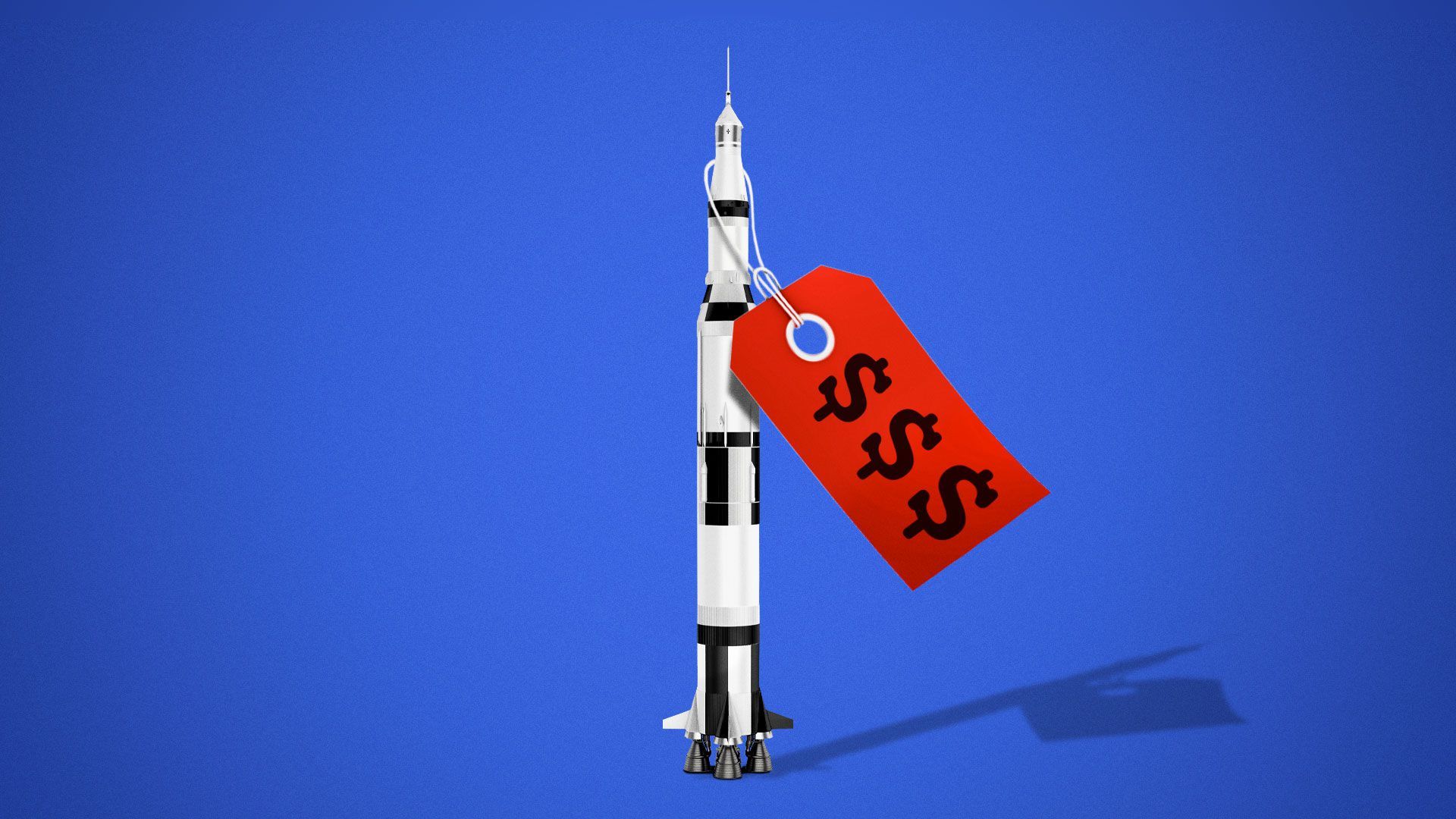NASA passes the torch
Add Axios as your preferred source to
see more of our stories on Google.

Illustration: Eniola Odetunde/Axios
With the historic crewed SpaceX launch last weekend, NASA passed the torch to private companies that will need to step up to build the economy the space agency envisions in orbit.
Why it matters: This new era of spaceflight will likely be marked by new conflicts — possibly including product placement (like the Tesla that drove the astronauts to the pad on Saturday), safety concerns and cultural differences between companies, the space agencies and people they serve.
What's happening: On Saturday, SpaceX launched its first crewed spacecraft for NASA, bringing a mission six years in the making to fruition.
- Unlike previous crewed missions to the space station, this one was run by a private U.S. company conducting prelaunch prep, mission control and the space station docking as part of a commercial venture.
- "It's a new way of doing business," Eric Stallmer, the president of the Commercial Spaceflight Federation told Axios.
The big picture: NASA is now working toward becoming a buyer of rockets, spacecraft and various services instead of a provider in low-Earth orbit, passing off more responsibility to private companies and allowing NASA to focus on further-afield goals like getting people to Mars.
- "Those partnerships are going to enable our providers to get customers that are not NASA and drive down our costs, and we're going to have numerous providers that are competing on cost and innovation and safety," NASA administrator Jim Bridenstine said after the Crew Dragon docked on Sunday.
- Yes, but: "The emergence of space as an economically valuable commercial endeavor has had a number of milestones along the last 20 years," aerospace consultant Jeff Greason told Axios. "This is another one. And it's a very important one, but it's not the only one and it's not the last one."
Between the lines: Development of the Crew Dragon wasn't always smooth sailing between NASA and SpaceX, and there will likely be more conflicts as companies work to create the new space economy.
- Private companies may have a higher tolerance for risk than NASA, possibly increasing the chance of accidents in the future.
- However, unlike government space agencies, private companies have an economic incentive to make sure no accidents happen, potentially making spaceflight more safe.
What to watch: Effectively, this mission is a proof-of-concept for companies hoping to one day make money in space.
- "I'm particularly excited about the opportunities that opens up," says Michael Suffredini, CEO of Axiom Space, which is aiming to build the first private space station. "Our whole business is based on being able to procure transportation to the International Space Station and ultimately to our space station."
But, but, but: While companies like SpaceX have been working toward making spaceflight cheaper and more accessible, there is still a long way to go before flights to space for humans and cargo are affordable.
- The economic crisis caused by the coronavirus pandemic could make it harder for companies interested in building the economy in low-Earth orbit to find funding.
- NASA may also paint itself into a corner with its commercialization plans. If future administrations don't prioritize exploration and private companies have taken over most operations near Earth, it might leave the agency stranded on the ground.
